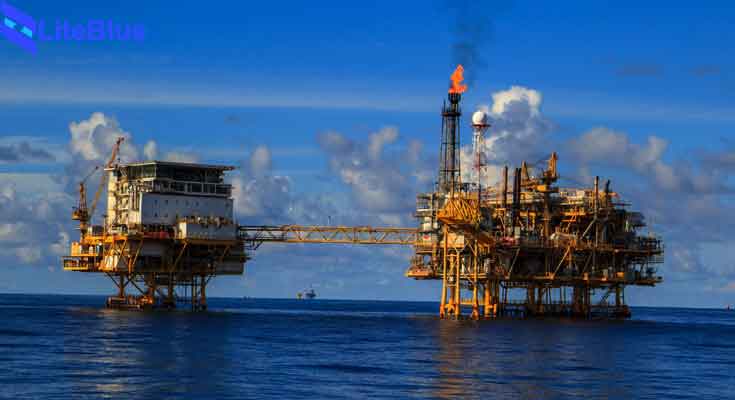Offshore accidents are often some of the most devastating incidents that workers can face. Whether you’re working on an oil rig, a shipping vessel, or performing maintenance on offshore wind farms, the environment is inherently dangerous. With heavy equipment, harsh weather conditions, and a range of other hazards, offshore workers are exposed to significant risks. In the unfortunate event of an accident, these workers need a qualified offshore accident lawyer to guide them through the complex legal processes that follow.
Offshore accident lawyers specialize in personal injury claims related to accidents occurring at sea, on oil rigs, or on offshore platforms. These legal professionals are trained to navigate the intricacies of maritime law, including the Jones Act, the Longshore and Harbor Workers’ Compensation Act (LHWCA), and other relevant regulations. Their job is to ensure that offshore workers receive compensation for their injuries and suffering, whether it be through workers’ compensation, personal injury lawsuits, or maritime claims.
What is an Offshore Accident Lawyer?
An offshore accident lawyer is a personal injury attorney who specializes in representing individuals who have been injured while working in offshore environments, including oil rigs, cargo ships, or other maritime settings. These lawyers are familiar with the complex intersection of maritime law, labor laws, and personal injury law that apply to accidents occurring at sea or on offshore platforms.
Offshore accident lawyers provide a crucial service by helping workers recover compensation for medical expenses, lost wages, pain and suffering, and other damages resulting from an accident. They are well-versed in the specific legal framework that governs maritime workers, and they play an essential role in ensuring their clients are fairly compensated for injuries that occur due to employer negligence, defective equipment, unsafe working conditions, or other factors.
Common Offshore Accidents
Working offshore, whether on an oil rig, a cargo vessel, or an offshore wind farm, presents numerous hazards that can lead to serious accidents. Some of the most common offshore accidents include:
Falls
Falls are one of the most frequent types of offshore accidents, often occurring on oil rigs, platforms, or ships. Workers may fall from heights while performing maintenance or repairs, or they could slip and fall on wet or uneven surfaces. These falls can result in broken bones, head injuries, spinal injuries, and in some cases, fatalities.
Explosions and Fires
Offshore platforms, especially those involved in oil and gas extraction, are prone to explosions and fires. These types of accidents can be catastrophic, causing severe burns, traumatic injuries, and loss of life. Explosions may occur due to faulty equipment, gas leaks, or improper safety procedures. In some cases, workers may suffer long-term physical and psychological consequences due to these violent events.
Equipment Malfunctions
The heavy machinery used on offshore rigs, ships, and platforms is prone to malfunctions or failures. Equipment like cranes, drilling tools, or winches can fail, leading to serious injuries or even fatalities. If an injury is caused by defective equipment or a failure to properly maintain machinery, an offshore accident lawyer can help pursue compensation.
Struck-by Objects
On offshore worksites, workers are frequently in close proximity to large equipment, machinery, and tools. Injuries from falling or moving objects are common, particularly on crowded ships or platforms where workers may be near cranes, pulleys, or heavy cargo. These injuries can include broken bones, concussions, and other serious harm.
Drowning
Maritime workers are also at risk of drowning, particularly if a vessel capsizes or sinks. Offshore workers who are exposed to the dangers of falling into the sea or experiencing an accident in a maritime environment may drown, even with safety gear like life jackets. In cases of wrongful death due to drowning, an offshore accident lawyer can help families pursue legal recourse.
Hypothermia and Dehydration
Offshore environments can be harsh, with extreme weather conditions. Workers exposed to cold or hot environments can suffer from hypothermia, dehydration, or heatstroke. These conditions can be exacerbated by inadequate safety measures or lack of proper personal protective equipment (PPE). In these cases, workers can pursue compensation for medical treatment and other damages.
Exposure to Toxic Substances
Many offshore workers are exposed to hazardous materials, such as oil, gas, chemicals, or asbestos. Long-term exposure to these substances can cause respiratory problems, cancer, and other serious health conditions. An offshore accident lawyer can help workers recover compensation for illnesses caused by exposure to toxic substances while working on offshore platforms.
Transportation Accidents
Accidents can occur while workers are being transported to or from offshore rigs or ships. Helicopter crashes, boat accidents, or vehicle accidents during transportation can lead to severe injuries or death. In these cases, an accident lawyer may help workers file claims against negligent parties, such as transportation providers or employers.
The Legal Framework for Offshore Workers
Several laws specifically address the rights and protections of offshore workers. These laws are distinct from standard workers’ compensation laws and provide offshore workers with additional rights. Offshore accident lawyers are well-versed in the intricacies of these legal protections.
The Jones Act (Merchant Marine Act of 1920)
One of the most important laws for offshore workers is the Jones Act. The Jones Act provides protections for seamen and maritime workers injured on vessels, including ships, oil rigs, and platforms. This law allows injured workers to pursue compensation for damages through a personal injury lawsuit against their employer or a third party responsible for the injury.
The Jones Act gives workers the right to seek compensation for pain and suffering, lost wages, and medical expenses. In contrast to workers’ compensation, which is typically a no-fault system, the Jones Act allows workers to seek damages based on negligence, meaning that if the employer or vessel owner was negligent in maintaining safe working conditions, the worker can hold them accountable.
Longshore and Harbor Workers’ Compensation Act (LHWCA)
For workers who are injured while working on docks, harbors, or vessels that are not considered “seamen” under the Jones Act, the LHWCA provides benefits. This law covers longshoremen, harbor workers, and offshore oil rig workers who are injured while working on or around the water but are not assigned to a vessel.
The LHWCA provides compensation for medical treatment, rehabilitation, and lost wages, but it does not cover pain and suffering or provide the same type of legal recourse as the Jones Act. In some cases, workers can pursue additional claims against third parties that caused their injuries, such as equipment manufacturers or contractors.
General Maritime Law
General maritime law provides additional protections for workers injured while at sea or on an offshore platform. In certain cases, offshore workers may be able to file claims under general maritime law, including claims for unseaworthiness of a vessel or platform. Maritime law also includes provisions related to wrongful death claims for family members of deceased workers.
How an Offshore Accident Lawyer Can Help
Navigating the complexities of maritime law can be challenging without proper legal representation. An offshore accident lawyer plays a critical role in ensuring injured workers receive the compensation they deserve. Below are the key ways an offshore accident lawyer can help:
Assessing the Case and Identifying Legal Options
The first step an offshore accident lawyer takes is to assess the details of the case. Based on the specifics of the injury and the worker’s employment, the lawyer will determine which laws apply (such as the Jones Act or the LHWCA) and whether the worker can file a claim for compensation.
Investigation and Evidence Collection
To build a strong case, an offshore accident lawyer will investigate the circumstances of the accident. This includes gathering evidence such as accident reports, witness statements, photographs, and medical records. In many offshore accidents, the lawyer may need to consult experts, such as maritime safety specialists, to help determine the cause of the accident.
Negotiating with Employers and Insurance Companies
Offshore accident lawyers negotiate with employers, insurance companies, and other parties involved to secure the best possible settlement for the worker. Negotiating compensation can be a difficult process, especially since insurance companies may try to offer less than what the worker deserves. An experienced lawyer ensures that workers are not taken advantage of in this process.
Pursuing Legal Action
If negotiations do not result in a fair settlement, an offshore accident lawyer will take the case to court. Whether the case is under the Jones Act, the LHWCA, or general maritime law, an offshore lawyer will have the skills and experience to represent their client in front of a judge and jury.
Providing Legal Advice
An offshore accident lawyer also serves as a trusted advisor, answering any questions the injured worker has about the legal process. They will explain the different options available, the potential outcomes, and the steps involved in seeking compensation.
Filing a Claim: The Legal Process
The process of filing an offshore accident claim can be complex, and the steps involved may vary depending on the legal framework governing the case. Here is a general outline of the steps in filing an offshore accident claim:
Report the Accident
The first step after an offshore accident is to report the injury to the employer or supervisor. A formal report should be created to document the details of the accident, as this documentation will be crucial in building a claim.
Seek Medical Attention
Workers should seek immediate medical treatment for their injuries. Medical records and documentation are essential when seeking compensation, as they will help prove the extent of the injuries sustained.
Consult an Offshore Accident Lawyer
Consulting an experienced offshore accident lawyer is crucial in understanding your legal rights. The lawyer will review the details of the accident, advise on the best course of action, and determine whether a claim under the Jones Act, LHWCA, or general maritime law is appropriate.
File the Claim
Once the lawyer has gathered evidence and assessed the situation, they will file the claim with the appropriate party, whether it is an insurance company, the employer, or the court. The lawyer will handle all paperwork and legal requirements.
Negotiation or Trial
If a fair settlement is offered, the lawyer will negotiate on your behalf. If a settlement cannot be reached, the case will go to trial, and the lawyer will represent you in court.
Conclusion
Offshore accidents can result in catastrophic injuries, but with the help of an experienced offshore accident lawyer, injured workers can fight for the compensation they deserve. These lawyers specialize in maritime law and are equipped with the knowledge and resources needed to navigate the legal complexities of offshore claims. Whether dealing with oil rig accidents, maritime transportation incidents, or exposure to hazardous materials, offshore accident lawyers are crucial in ensuring that workers are not left to face the financial and physical burdens of an accident alone.If you or someone you know has been injured in an offshore accident, don’t hesitate to reach out to an experienced offshore accident lawyer. By doing so, you will be taking the first step toward securing justice and compensation for your injuries.




